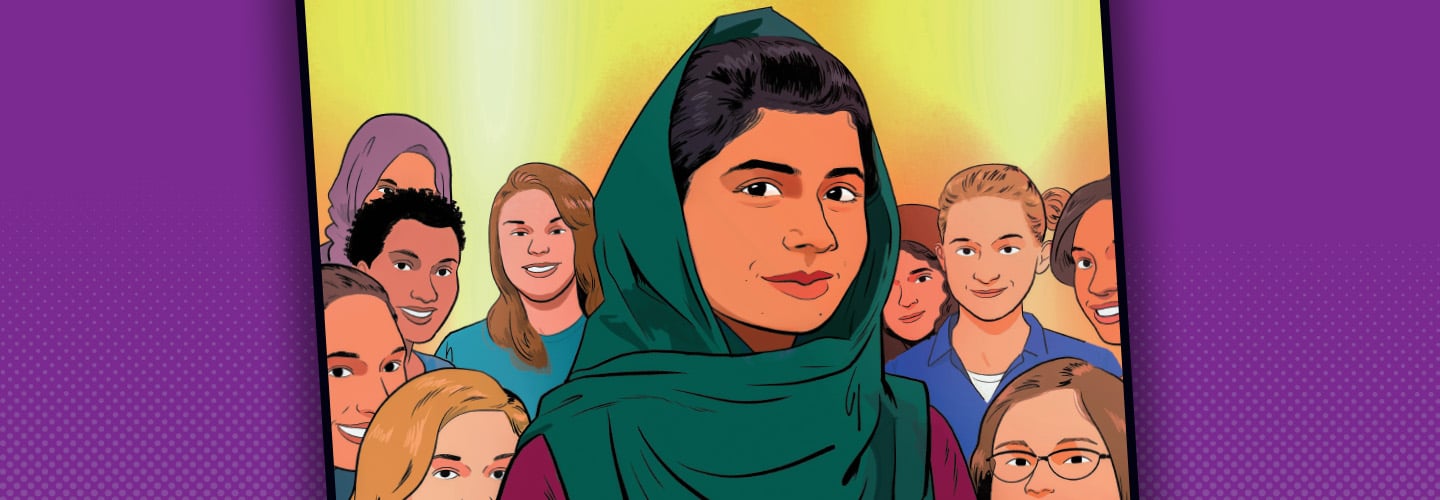Growing up, Malala Yousafzai (mah-LAH-lah YOO-suhf-zye) loved to go to school. She was at the top of her class. Malala dreamed of becoming a doctor, an inventor, or a politician.
But in 2007, when Malala was 10, going to school became very dangerous. That year, a terrorist group called the Taliban took control of the Swat Valley. That’s the region of Pakistan where Malala lived. The Taliban forbade women from having jobs and girls from going to school.
Malala bravely spoke out against the Taliban. She risked her life to stand up for every girl’s right to get an education.
Growing up, Malala Yousafzai (mah-LAH-lah YOO-suhf-zye) loved to go to school. She was at the top of her class. Malala dreamed of becoming a doctor, an inventor, or a politician.
But when Malala was 10, going to school became very dangerous. The year was 2007. A terrorist group called the Taliban took control of the Swat Valley. That’s the region of Pakistan where Malala lived. The Taliban forbade women from having jobs. They also stopped girls from going to school.
Malala bravely spoke out against the Taliban. She risked her life to stand up for every girl’s right to get an education.

